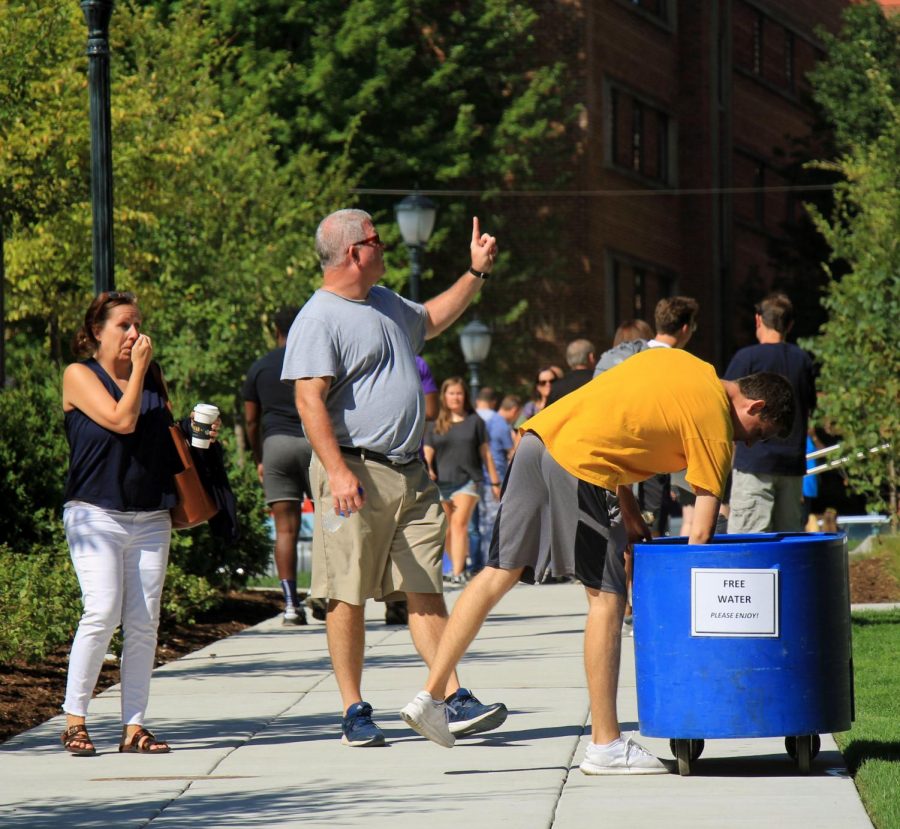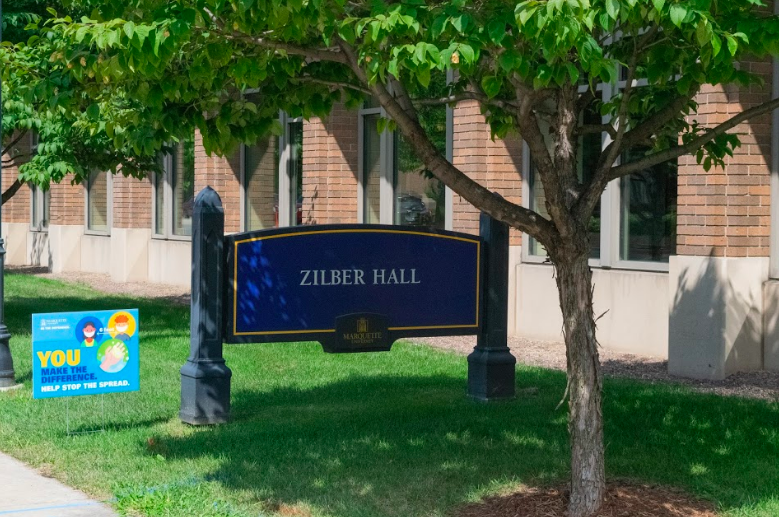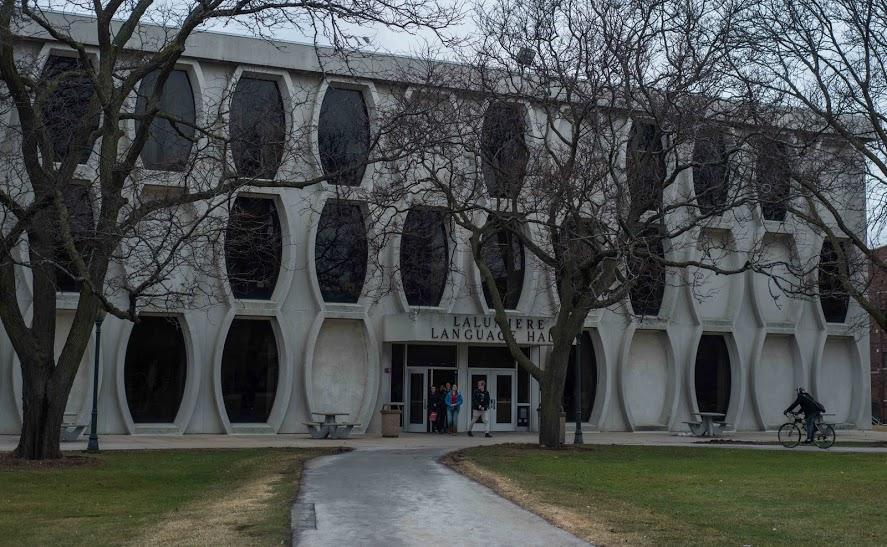Heidi Bostic, dean of the College of Arts & Sciences and College of Education, and her husband, Stephen Pluháček, moved into Campus Town East, a university-owned apartment, this August. They are the first participants in a new Faculty in Residence program being piloted at Marquette University this school year.
The vision for the Faculty in Residence program is for faculty participants to serve as campus community leaders and create a “clear and visible presence to help deepen integration and a more holistic student experience at Marquette.”
While Bostic and Pluháček still own a house on the East side of Milwaukee, Bostic said she considers the terms “house” and “home” to be two separate things.
“A house is a building you can own, and a home is where you share your life with others,” Bostic said in an email. “Having lived in many different places across the U.S. as well as in Europe and South America, we have found that ‘home’ is wherever we are together.”
And right now, for them, Marquette’s campus is home.
Joe Nelson, a senior in the College of Nursing, also considers Campus Town East his home on campus. Being close to the Sendik’s grocery store, Recreation Center and right across from the Alumni Memorial Union, Nelson said his apartment is in a convenient location.
“This is my third semester living in the same room with the same roommates, and I love it here,” Nelson said. “The location on campus is unbeatable and it is centrally located next to a lot of important buildings I go to regularly during the week.”
After moving in, Bostic and Pluháček spent their time volunteering to greet and assist families and students as they moved into Wells and Schroeder Halls on campus.
“The first weekend before classes began, things were a little lively. Since then, it has been a wonderful and peaceful experience with many unexpected meetings with colleagues and students across campus,” Bostic said in an email. “We love the energy that comes from living around students.”
Bostic said they both loved talking with students during move-in and getting a sense of the different areas of study that students are pursuing.
“We spoke with some parents of first-year students who were struggling with the reality of leaving their children and having to go home without them,” Bostic said in an email. “We reassured them that Marquette is a caring community that will support their students and ensure that they feel a sense of belonging and community here.”
Specifically, she said they loved meeting students and families from Omaha, where Bostic and Pluháček met and completed their undergraduate degrees.
Pluháček, an affiliated faculty member in the Department of Theology, said he is looking forward to getting to know more people in the Marquette community.
“I love the causal meetings that turn into robust conversations,” Pluháček said. “Making room in one’s life for others, including deeper relationships with faculty, staff and students, can open up time and space in unexpected ways.”
He also said he loves how easy it is to attend various events, such as mass at the Church of Gesu, prayer services and athletic events.
When Nelson first heard about the program, he said he thought it was an interesting idea.
“As a senior living in an apartment, I always viewed the transition from living in a dorm to an apartment as a step in the direction of greater independence,” Nelson said. “Especially by not having an RA on each floor and one continuously on-duty in the apartments, I feel like I’m living more on my own.”
However, he said that by having Marquette faculty living in the apartments, students may begin to feel less independent.
“One of my first thoughts was a concern about the noise undergraduate students make in the apartments, especially on the weekends,” Nelson said. “Hopefully we won’t be too loud for our faculty.”
Right now, Nelson said he is not sure exactly how the Faculty in Residence program will benefit students’ residential life, but believes it has good intentions.
“I typically don’t have long conversations or get to meet other students when we pass by,” Nelson said. “I can only imagine it will be the same when I run into my faculty neighbors … that’s not to say the faculty will ruin the community in Campus Town East.”
The Faculty in Residence program has four major goals: to foster student success, particularly for undergraduate students in their first and second years; expand employee engagement; sustainability and community relations.
“A significant body of research suggests that students benefit from the opportunity to interact with faculty members beyond the classroom. So we hope that students will gain from additional mentoring and conversations with faculty,” Bostic said in an email. “Just imagine if a significant percentage of faculty and staff lived near campus—think about what that could mean for our community.”
Aside from just living on campus, the Faculty in Residence program will be collaborating with Near West Side Partners and others to hopefully develop more opportunities for student success.
“We love living on campus and envision a future where we will always live on or near campus,” Bostic said in an email. “This is really a stage-of-life decision; perhaps ten years ago we would not have embraced the opportunity the way we do now.”
Just like Bostic and Pluháček consider their “house” and “home” as separate things, they also like to make a distinction between “work” and a “job.” They said a job is what you do to pay the bills and put food on the table, but work is a part of your calling and what you feel inspired to do.
“We both have been fortunate to find a lot of overlap between the two. We are not seeking a separation between work and life,” Bostic said in an email. “Both can unfold together while living on campus. It’s a path to a more joyful and integrated life.”
This story was written by Skyler Chun. She can be reached at skyler.chun@marquette.edu.






